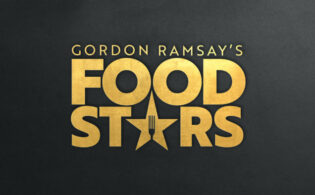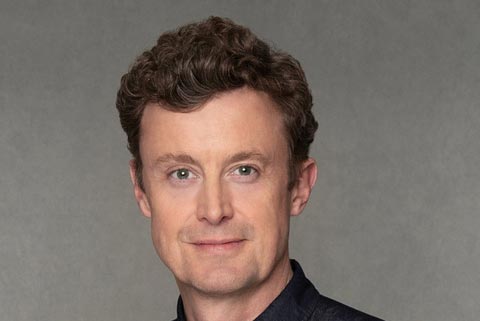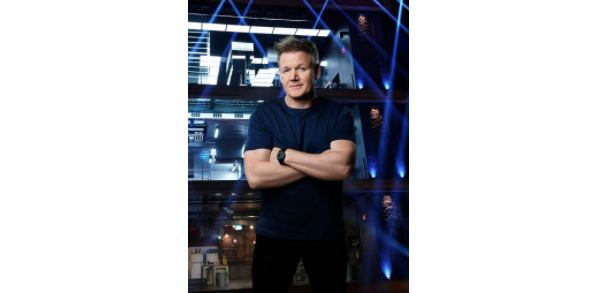Rob Wade, president of alternative entertainment and specials at FOX Entertainment, talks to TV Formats about building The Masked Singer into a franchise, bringing shows like Lego Masters and I Can See Your Voice to the U.S. and the need for broadcasters to take risks today.
The Masked Singer was arguably the biggest story in the format business last year, as the breakout success of the celebrities-in-masks singing contest on FOX kicked off a string of deals in key markets around the world, including the U.K., Germany and Australia. As Wade has not shied away from taking big bets on foreign concepts since he joined the broadcaster three years ago. In fact, finding new talent is at the heart of Wade’s strategy at Fox Alternative Entertainment (FAE), a new unscripted studio that will develop and produce concepts for FOX as well as third-party platforms.
 TV FORMATS: You recently appointed Allison Wallach to lead Fox Alternative Entertainment (FAE). Tell us about this new unscripted studio.
TV FORMATS: You recently appointed Allison Wallach to lead Fox Alternative Entertainment (FAE). Tell us about this new unscripted studio.
WADE: Allison Wallach has an incredible amount of experience. She’s worked at production companies, networks and agencies, so she has a true understanding of the business. In the unscripted world at the moment, there’s no playbook anymore. So, whoever leads a company that is going to be entrepreneurial and creative has to understand what’s happened before, so we can look at how to move forward.
We’re in a great situation with where we are in our productions at FAE. We have The Masked Singer, The Masked Dancer, a few specials [and I Can See Your Voice for later this year]. Launching FAE and bringing the production of The Masked Singer in-house gave us a stronger ownership position and greater creative control. That allowed us to do spin-offs and create merchandising revenues, tour revenues, things like that. We can work directly with the talent on those shows, which then allows us to find and nurture new voices in the unscripted arena. And FAE will enable us to bring more producers and more talent in-house and, therefore, create other shows.
TV FORMATS: Speaking of The Masked Singer, season three premiered right after the Super Bowl. No pressure! What went into crafting that premiere episode and the season as a whole?
WADE: I didn’t necessarily feel pressure, I just wanted to make sure that we were putting our best foot forward. The first show of a season is really hard. You never know what you’re going to get. We were lucky that we got a great reveal with Lil Wayne. We didn’t expect him to go in that [episode], honestly, but he did, and that was good for us. In terms of the format, the biggest thinking we did was around [whether we should] keep it as it was or split it into three groups of six [celebrities]. So we’re doing a group of six that goes down to three, then another group of six starts and goes down to three and then another group of six goes down to three. There will be nine left by the tenth show, and then we start on a more regular pattern at that point. We’re still at the learning stage, the discovery stage, in this format. There are inherent difficulties that aren’t like any other show that you just have to manage around. We’re still trying to get it right for the audience, sustain it as a franchise moving forward and give ourselves a format that provides us with enough hours, frankly, to fill the schedule. It’s great having a hit like this, but you want to make sure it’s maximized. I think that happened at NBC [with The Voice] and FOX back in the day with American Idol. Those formats started as very short runs, but because of the nature of those formats, you could expand them to many hours. That’s really when you win as a network. You’re not only getting a great show and good ratings, but you’re also getting it in lots of different slots in your schedule, which increases the overall average for the network. That’s our goal.
TV FORMATS: The format had barely traveled before it arrived on FOX and has since rolled out in a host of markets. Take me back to the beginning—what was your initial response to the pitch from Craig Plestis? Why did you feel it could work in the U.S.?
WADE: It was actually easier than you would think. You have to find something that is new and different. This was new and different. I was shown a tape, and it was a ladybird (a ladybug as they say in America) singing “Crazy in Love,” and I saw how the panel worked, and I felt like it was just a great entertainment show. There was a real opportunity there. It was right in my wheelhouse as well. I had spent the majority of my life working on celebrity shows and singing shows, so combining the two, I was like, Yeah, I get it! The fear was whether it was just too wacky. That was where the risk was. Right up until the day before the show aired, I was like, Are people just going to think it is too weird?
Our mantra at FOX is, you have to do these shows that are fresh and different and take risks. That’s where we’ve had success. The Masked Singer has become America’s favorite guessing game.
TV FORMATS: Tell us the story behind The Masked Dancer.
WADE: A couple of days after Masked Singer started, we saw the segment on Ellen [the talk show featured a parody of the show]. And then they did another one. Then I got a phone call from my legal department [laughs], and I said, This is great promotion for the show! I contacted [the producers at Ellen] and said, I think it would make sense to do this with you, if you’re up for it. We feel really good about the show; it’s going to be fun. We’ve learned from Singer that the judges base [many of their guesses] on physicality and movement and just hearing [the masked celebrities] talk, even with the modulated voice. There’s a huge amount you can learn from someone dancing. You can work out if they are a dancer or not. If you’re a boy-bander or a Broadway person or a sports person, you dance in a certain way. There’s actually more clear movement and physicality than you’d think.
TV FORMATS: What appealed to you about LEGO Masters? Was it the Australian version that sold you?
WADE: I know Karen Smith [CEO and managing director of Tuesday’s Child, the originator of the show] quite well. I watched the U.K. version, and we talked about getting it. It takes about three hours to make a cake, so you can film an episode [of a cooking show] pretty quickly. It takes days to build these [LEGO structures]. I liked it a lot, and we toyed with buying it. It didn’t have the scale for us. And then it went to Australia, and they did a great job. I watched the first episode and thought, I want this. It has the pacing and formatability of MasterChef, and it has great scale and great color. What they’ve done that is incredibly clever is worked out a way for the host, Hamish Blake, to call out reality tropes. It’s the Deadpool of reality shows. Ryan Reynolds took that character and broke the fourth wall and called out some of the cheesier aspects of superhero films and became quite the antihero. We understood [from the Australian version] that we could just have fun with it. Will Arnett [is the host] and you will laugh out loud in that show, I guarantee it. He’s so funny and he surprises you. He doesn’t treat the contestants like normal contestants. The contestants take the piss out of him as well. It’s brought a freshness to [the show]. I’m very proud of it, and I’m proud of what the producers have done.
TV FORMATS: As you look out at the format landscape, what trends are you seeing? Are you sensing that broadcasters are still quite risk-averse to new concepts?
WADE: Yes, it’s become that way. They are risk-averse in two ways. They are doing shorter runs of things, which means you can get on and off quicker, but obviously, it’s challenging to keep costs down or build a massive set or do something with a lot of scale. That only works for certain types of shows. There are a lot of game shows being pitched because game shows are cost-effective. If you get the game show right, it is very inexpensive and time-filling programming. Unfortunately, a lot of broadcasters are just looking back and playing it safe with old formats and playing moneyball with license fees and older formats. And they’re great shows. So it’s good if you’re a big company with a lot of shows in your library. It’s bad for new, young producers breaking into the business who are trying to start their own production companies. I’m not old enough to have worked in the business before reality TV, but I started right when it began. I had the advantage of this proliferation of ideas, and a lot of very young people growing up in the business and becoming the stars of the business. I want 20- to 25-year-olds to be coming through with their ideas now. That’s what used to happen. But if there are no risks taken and not enough hours on a schedule, they are never going to get their chance. That’s a bad thing. They’re going to go to another creative outlet, and that’s where they’ll have their success, which again is a shame for unscripted television. I think it’s our duty to start bringing up the next generation of creatives. At FAE, Allison is curating that possibility; those grassroots people can come in and [we’re allowing] them the creative freedom to come up with and make new formats. That’s where the next big hit is going to be.
I also think there are pockets of the world that are swinging for the fences: Korea, China, the Far East. You still get really interesting ideas coming out of Israel, Holland, Belgium.
TV FORMATS: What are some of your upcoming highlights?
WADE: We have Ultimate Tag, which is from Znak & Co. It has [football stars TJ and Derek] Watt on it. We wanted a physical competition show, but we didn’t want to take it too seriously. So it’s an irreverent show, tongue-in-cheek, very Saturday teatime, as you might say in the U.K. It has big scale, and it’s fun and dynamic and exciting. We have the Gordon Ramsay shows coming back, Hell’s Kitchen and MasterChef. Beat Shazam with Jamie Foxx is coming back. It’s shown great staying power and consistency, and it’s just a fun show to watch. We have I Can See Your Voice, a CJ ENM format, with Ken Jeong hosting. And then The Masked Dancer is coming up soon. And future cycles of The Masked Singer. My focus now is on the fall and midseason and trying to launch something big there. I’m hoping LEGO Masters will return. I’m hoping all these shows I just discussed will return. The development process now is saying, What’s the next big one? What’s the next broad hit?
This interview was conducted prior to the COVID-19 global pandemic. Media companies are currently shifting their strategies in the wake of production postponements and economic trends.
 TVFORMATS
TVFORMATS






